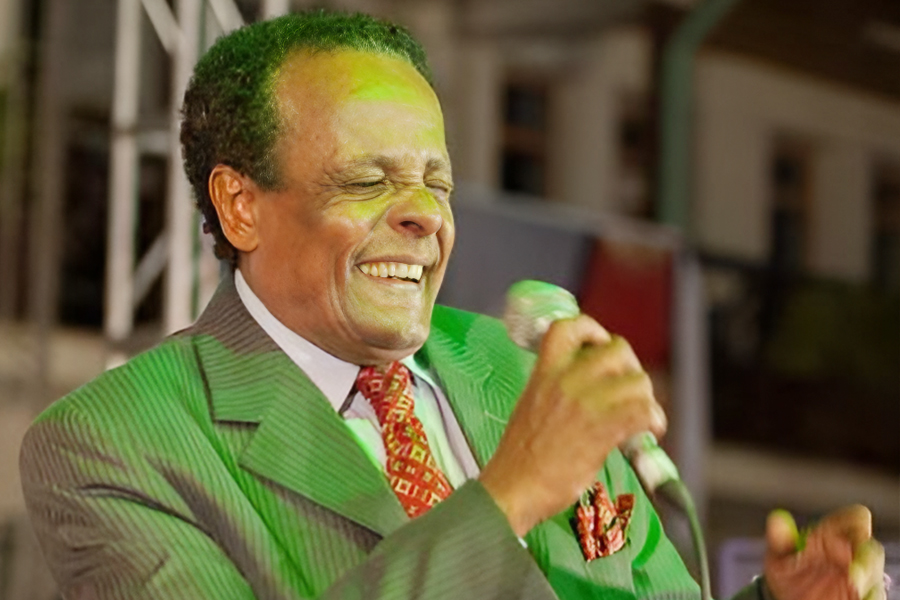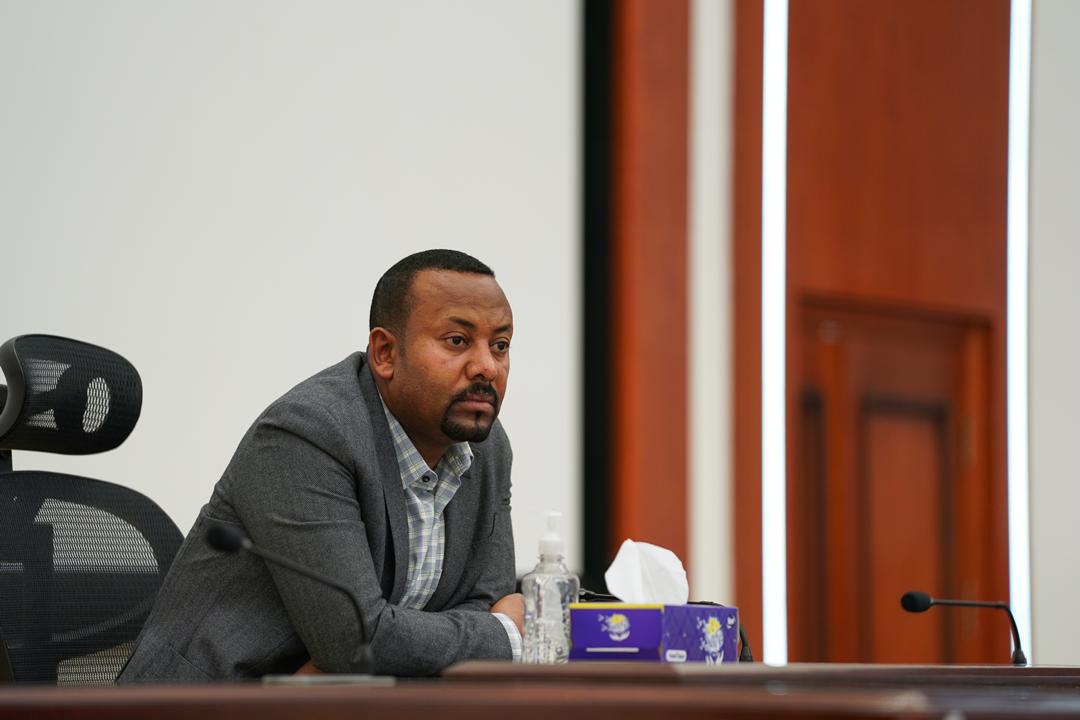
Commentaries | Dec 11,2021
Sep 4 , 2021.
Ethiopia has become a familiar topic at the United Nation’s Security Council, a powerful organ whenever its members agree to do something of consequences. With the mandate to impose economic sanctions and military actions, it has flexed its authority from major conflicts and crises such as the Korean War to the Suez Canal Crisis and Syria. Most recently, like most UN organs, several of its engagements have been in Africa, given the continent’s ever disappointing political and developmental outcomes.
Rwanda, Sudan, Liberia, Sierra Leone, Somalia and DR Congo have had peacekeeping missions stationed at one time or another. Ethiopia has a visible presence in many of these places, contributing to the largest military contingent under the blue helmet.
Ironically, Ethiopia had been a topic of discussion for the Security Council since November last year, the latest being the eighth round. In each session, the Council remains divided over what to think about the civil war claiming too many lives in Ethiopia.
The Security Council can only affect matters if its permanent members are on the same page. They are not. This is not only on Ethiopia; on many issues impacting the world.
The United States, the United Kingdom and those of the European Union, crusaders for a world in the image of their own liberal order, want an UN-led intervention in Ethiopia’s civil war. In the face of catastrophic human plight, the responsibility to protect civilians far outweigh the sensibilities of borders and sovereignty. For countries such as Russia and China, champions of illiberal order, national sovereignty is sacred. They would have none of it, perhaps because they fear such interventions could become precedents to act upon them as well.
It is a world of distrustful countries, doing the bare minimum to maintain an uneasy peace but not much more. Principles are rarely observed.
Russia cries foul over unfair American economic and military influence but does not want any questions over what it considers is its sphere of influence. It is determined to reconstruct Euro-Asia in illiberal image and conviction. China prides itself in its lack of global military adventurism but does not want to hear a peep about its treatment of minorities. The double standard by the United States whenever issues of Palestine are tabled has robbed it of the moral high ground. It also vetoes UN resolutions to free Cuba from the cruel embargo placed on it accused of failing to advance democracy despite keeping a close military pact with Saudi Arabia and Egypt.
In between, countries such as Ethiopia, Myanmar, Afghanistan, Venezuela and Nigeria, to mention a few, are slipping through the cracks into a future that is as uncertain as it comes.
Two months shy of a year since the war in Tigray started, the international community's reaction has become somewhat predictable. It has three manifestations: pledges of humanitarian aid to help displaced people and those in active conflict zones to thwart hunger and malnutrition; the threat of economic sanctions, which have become a favoured policy toolkit of the Western powers soon after the end of the Cold War; and, the prospect of proxy battle the longer the civil war lingers.
The rationale behind economic sanctions is not that they are a surefire way of resolving conflicts peacefully. In fact, evidence suggests that the opposite is more probable, given that a falling economy gives rise to more unemployment and desperation that goes on to feed radicalism. Instead, it is the least controversial form of responding to such events; whether or not it works is another matter.
Jeremy Greenstock, United Kingdom's ambassador to the UN for five years beginning in 1998, witnessed military actions becoming unpopular and in many ways ineffective in a modern legitimacy-oriented world. Neither did he see words work with hard regimes. He had pondered what else could be in between these and an act of necessity. A divided international community remains undecided to figure this out over Ethiopia`s regrettable but avoidable debacle.
No less expected these days from the international community is the barrage of statements over some incident or another. Atrocities are a dime a dozen these days, as are strongly worded condemnations from the US, the EU or the UN of the perpetrators and the conduct of one or the other side in the war whose scope and nature is changing by the day.
It has been a year of this, and evidently, this form of engagement is not making any significant difference. Sanctions do not make a dent when both sides believe that they are locked in an existential struggle for survival. Each side believes in its rectitude and is convinced that in the end, it will prevail. History will be the better judge on both counts.
Neither are the parties in the war shamed for inaugurating horror upon millions of innocent people and destroying the future of subsequent generations. Their respective supporters have the audacity, if not surprisingly effective talent, of justifying the excess of their side, using that of the opponent as a motivation for continuing the conflict.
In the face of this, it would have been a stretch to imagine the international community could help in any significant way.
A society unable to look after itself is unlikely to be helped by outsiders. The whole debacle in Afghanistan is a testament that state-craft cannot be imported by an outside power, even if billions of dollars in annual aid are poured into the country, as long as an elite bargain has not been brought about between domestic contending forces.
This is not to argue that the international community has been entirely useless, even as divided as it may be within the Security Council. There has been much to heed for leaders in the constant call for a political resolution to the conflict. The untold suffering of civilians has deservedly been highlighted as the need to cease hostilities and the withdrawal of foreign forces. No less pertinent has been for unfettered access to humanitarian assistance and the accountability of those that have committed atrocities.
Despite several futile statements, the major global consensus must be that the war in Ethiopia is a conflict inherently political in nature. It morphed into a war precisely because non of the parties in the conflict had the foresight nor the capacity to identify vanity and folly are terrible substitutes for political tolerance.
There is thus much to commend in the international community to insist that there could be no military solution but a negotiated peace – as opposed to one imposed by whoever is momentarily victorious.
A Security Council that acts with unity of purpose would have had more authority and legitimacy in helping Ethiopia move towards peace. Robbed of that, there is no comprehensive plan that will not be subverted by one power or another in bilateral engagements with those at the helm of the Ethiopian state. It is, in the end, up to the elites and their gospellers to find a path out of the war they started.
The best way to help this process is not through disengagement, however.
The way the leaders behave may be frustrating, but they have the fate of millions of people in their hands. Diplomatic isolation serves only a narrow purpose for a war this complex. Rarely is it a good idea for any force to be made desperate and forced into a corner - it reacts in a destructive manner that is hard to contain. It can only produce one more pariah state in the list of several. To lose faith in the majority caught up in the war would be to rob them of hope.
PUBLISHED ON
Sep 04,2021 [ VOL
22 , NO
1114]

Commentaries | Dec 11,2021

Viewpoints | Oct 19,2019

Commentaries | May 27,2023

Life Matters | Feb 01,2019

Commentaries | Jun 21,2025

Fortune News | May 06,2023

Commentaries | Jan 16,2021

Obituary | Mar 02,2024

Viewpoints | May 16,2020

Covid-19 | Apr 08,2020

Photo Gallery | 180609 Views | May 06,2019

Photo Gallery | 170803 Views | Apr 26,2019

Photo Gallery | 161885 Views | Oct 06,2021

My Opinion | 137300 Views | Aug 14,2021

Dec 22 , 2024 . By TIZITA SHEWAFERAW
Charged with transforming colossal state-owned enterprises into modern and competitiv...

Aug 18 , 2024 . By AKSAH ITALO
Although predictable Yonas Zerihun's job in the ride-hailing service is not immune to...

Jul 28 , 2024 . By TIZITA SHEWAFERAW
Unhabitual, perhaps too many, Samuel Gebreyohannes, 38, used to occasionally enjoy a couple of beers at breakfast. However, he recently swit...

Jul 13 , 2024 . By AKSAH ITALO
Investors who rely on tractors, trucks, and field vehicles for commuting, transporting commodities, and f...

Nov 2 , 2025
The National Bank of Ethiopia (NBE) has scrapped the credit-growth ceiling that had s...

Nov 2 , 2025 . By SURAFEL MULUGETA
The burgeoning data mining industry is struggling with mounting concerns following th...

Nov 2 , 2025 . By YITBAREK GETACHEW
Berhan Bank has chosen a different route in its pursuit of a new headquarters, opting for a transitional building instea...

Nov 2 , 2025 . By BEZAWIT HULUAGER
Nib International Bank S.C. has found itself at the epicentre of a severe governance...